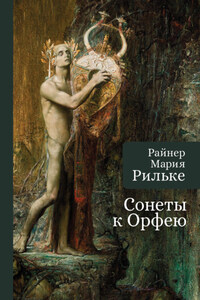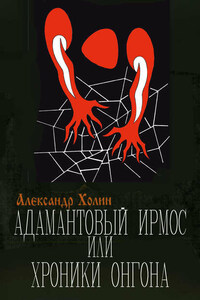The first created thing was light. Then life came, then death. In between was fear. But not love. Love was absent. In Eden there was none. Adam and Eve emerged there adult. The phases of the delicate fever which others in paradise since have experienced, left them unaffected. Instead of the reluctances and attractions, the hesitancies and aspirations, the preliminary and common conflagrations which are the beginnings, as they are also the sacraments, of love, abruptly they were one. They were married before they were mated.
The union, entirely allegoric – a Persian conceit – differed, otherwise, only in the poetry of the accessories from that which elsewhere actually occurred.
Primitive man was necessarily speechless, probably simian, and certainly hideous. Women, if possible more hideous still, were joined by him momentarily and immediately forgot. Ultimately, into the desolate poverty of the rudimentary brain there crept a novelty. The novelty was an idea. Women were detained, kept in lairs, made to serve there. Further novelties ensuing, creatures that had learned from birds to talk passed from animality. Subsequent progress originated in a theory that they were very clearly entitled to whatever was not taken away from them. From that theory all institutions proceed, primarily that of family.
In the beginning of things woman was common property. With individual ownership came the necessity of defence. Man defended woman against even herself. He beat her, stoned her, killed her. From the massacre of myriads, constancy resulted. With it came the home: a hut in a forest, a fort on a hill, in the desert a tent, yet, wherever situated, surrounded by foes. The foes were the elements. In the thunderclap was their anger. In the rustle of leaves their threats. They were placatable, however. They could be appeased, as human beings are, by giving them something. Usually the gift was the sacrifice of whatever the owner cared for most; in later days it was love, pleasure, sense, but in these simpler times, when humanity knew nothing of pleasure, less of love, and had no sense, when the dominant sensation was fright, when every object had its spectre, it was accomplished by the immolation of whatever the individual would have liked to have had given to him. As intelligence developed, distinctions necessarily arose between the animate and the inanimate, the imaginary and the real. Instead of attributing a malignant spirit to every element, the forces of nature were conglomerated, the earth became an object of worship, the sun another, that being insufficient they were united in nuptials from which the gods were born – demons from whom descended kings that were sons of heaven and sovereigns of the world.
In the process, man, who had begun by being a brute, succeeded in becoming a lunatic only to develop into a child. The latter evolution was, at the time, remote. Only lunatics abounded. But lunatics may dream. These did. Their conceptions produced after-effects curiously profound, widely disseminated, which, first elaborated by Chaldæan seers, Nineveh emptied into Babylon.
Babylon, Queen of the Orient, beckoned by Semiramis out of myth, was made by her after her image. That image was passion. The city, equivocal and immense, brilliant as the sun, a lighthouse in the surrounding night, was a bazaar of beauty. From the upper reaches of the Euphrates, through great gates that were never closed, Armenia poured her wines where already Nineveh had emptied her rites. In the conjunction were festivals that magnetized the stranger from afar. At the very gates Babylon yielded to him her daughters. He might be a herder, a bedouin, a bondman; indifferently the voluptuous city embraced him, lulled him with the myrrh and cassia of her caresses, sheltering him and all others that came in the folds of her monstrous robe.
In emptying rites into this furnace Nineveh also projected her gods, the princes of the Chaldæan sky, the lords of the ghostland, that, in patient perversities, her seers had devised. Four thousand of them Babylon swallowed, digested, reproduced. Some were nebulous, some were saurian, many were horrible, all were impure. But, chiefly, there was Ishtar. Semiramis conquered the world. Ishtar set it on fire.
Ishtar, whom St. Jerome generically and graphically described as the Dea Meretrix, was known in Babylon as Mylitta. Gesenius, Schrader, Münter, particularly Quinet, have told of the mysteries, Asiatically monstrous, naïvely displayed, through which she passed, firing the trade routes with the flame of her face, adding Tyrian purple and Arabian perfumes to her incandescent robe, trailing it from shore to shore, enveloping kingdoms and satrapies in her fervid embrace, burning them with the fever of her kisses, burning them so thoroughly, to such ashes, that to-day barely the memory of their names endures; multiplying herself meanwhile, lingering there where she had seemed to pass, developing from a goddess into a pantheon, becoming Astarte in Syria, Tanit in Carthage, Ashtaroth in Canaan, Anaïtis in Armenia, yet remaining always love, or, more exactly, what was love in those days.














